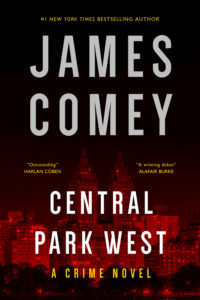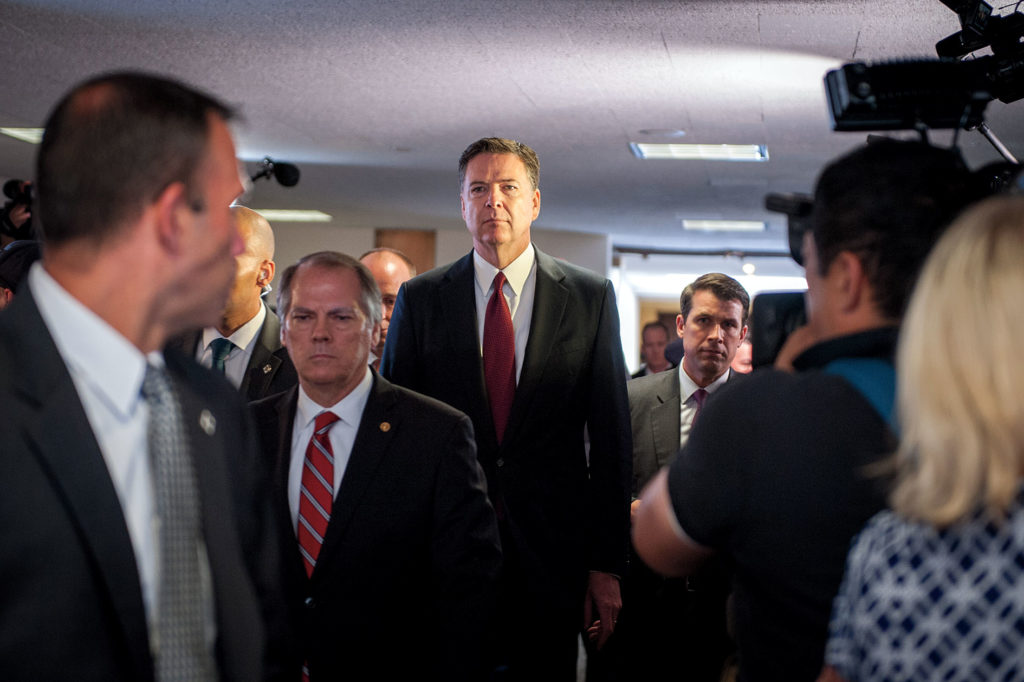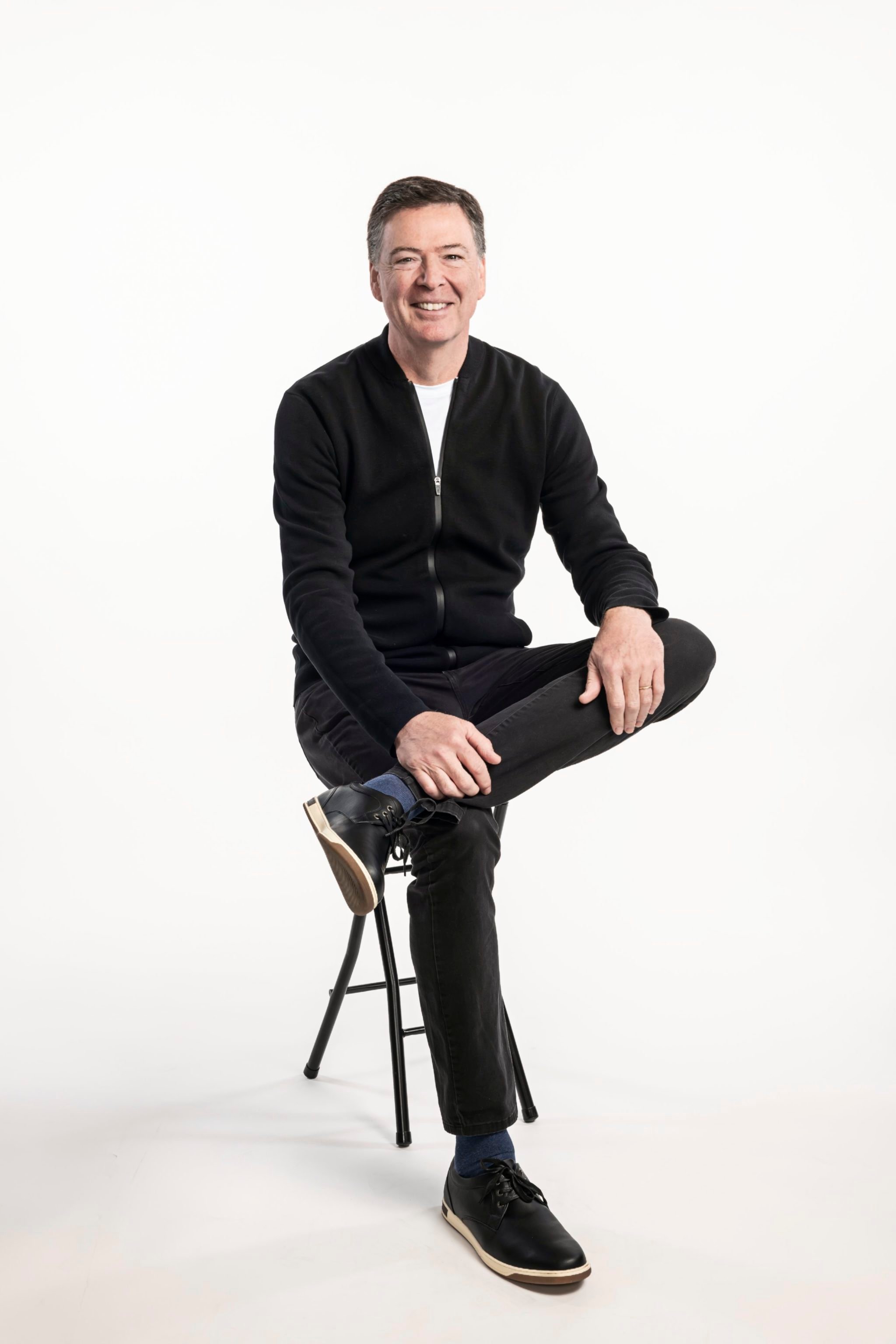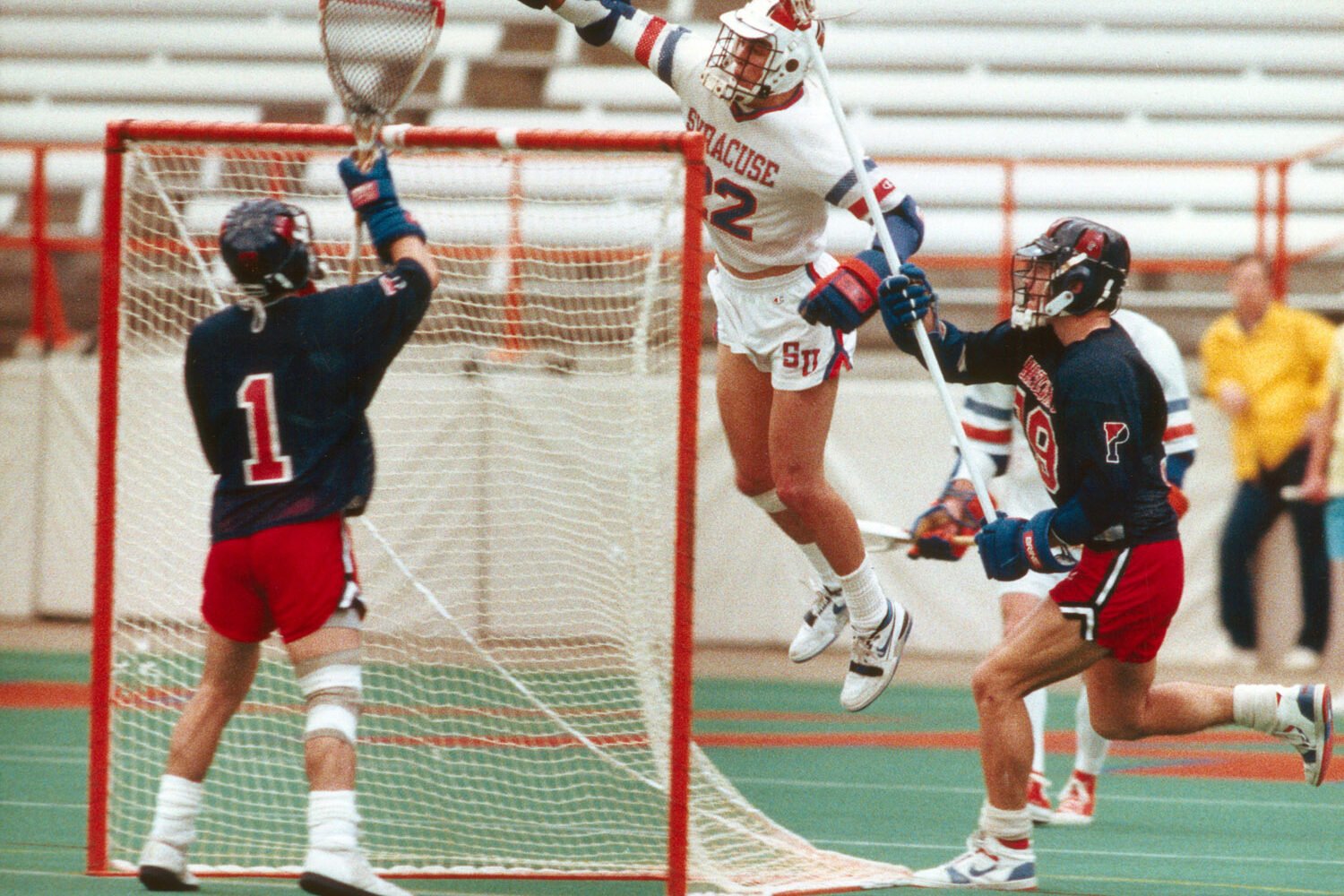James Comey’s career has always been dramatic. As a prosecutor in New York, he took on the Mafia and Martha Stewart. Then came a stint running the FBI, that press conference about Hillary’s emails, and his exceptionally high-profile firing by Donald Trump. Afterward, he wrote a bestselling memoir—and then more or less disappeared from public life.
Now he has re-emerged with a novel: a legal thriller called Central Park West. The hero is Nora Carleton, a headstrong and idealistic young lawyer working the Mafia-related murder of a lecherous New York governor. Yes, it’s a look under the hood of the Justice Department—Comey’s career clearly informs the plot—but it’s surprisingly literary, too. The characters are complicated and the details rich, particularly when it comes to architecture, feminism, and interior decor. Comey says his ambition is to be a full-time novelist, and he has at least nine books roughly planned. We spoke to him at his home in Northern Virginia via Google Hangouts.

First, I have to ask. Are you a “catty bitch from New Jersey” who “lives for drama”?
[Laughs.] That was a headline in the Onion. I’m not, but my kids think it’s the funniest thing they’ve ever heard. Whenever I get worked up about something, one of them will say, “Yeah, Dad, but you’re just a catty bitch from New Jersey who lives for the drama.”
I’m curious how you decided to write a novel.
I was never going to write a novel, but I was nudged by the editor of my last nonfiction book. His pitch was: “Look, you love to write. You could show people institutions they don’t know but you know well. And you could show them in a cooler, more free way if you did it through fiction.” I decided to give it a shot and found it addictive.
Are there novels you particularly admire?
I became a federal prosecutor in 1987, and Scott Turow’s Presumed Innocent had just come out. I read it and it lit me up—like, how cool is this? It’s amazing. And then I’m not sure I read fiction again for years. I would try, but my life was consumed by crime and terrorism and espionage and all of these things, and I found it difficult to read about it in my free time. When I was in government, I read non-fiction—books about historical figures, things like that. So it was one of the many blessings of getting fired that as I got farther from the work, it became easier to read people’s imagined stories about the work.
What have you read recently that you enjoyed?
One of my daughters is a writer—a better writer than I—and she introduced me to a bunch of different authors. She nudged me to read War and Peace, which was a major endeavor. I’ve read a bunch of stuff because my youngest convinced me. She had me read Red, White & Royal Blue and My Policeman. I loved The Seven Husbands of Evelyn Hugo.
How did you figure out how to write a novel?
[My wife] has a great story vision, much better than my own. The way we work is that Patrice conceives of an idea for a story and we sit down over coffee in the morning and talk about it. Then I go off and write a summary of what that might look like, share it with her in a Google Doc, she comments on it, and then we go round and round. In a way, I tried to treat it as if I were writing nonfiction. Once Patrice helps me imagine a story and the characters become real to me, then I’m just telling their stories.
I love to write. I thought I might be a journalist when I was a college student. And I type very quickly—in high school, I was not a good athlete, but I was trying to make a team and the coach was the typing teacher, so I signed up for typing to suck up to him. It didn’t work. But I learned how to type. I type very, very quickly. So the writing is not the hard part for me. Once I imagine the story, it flows out.
It seems like Patrice was essential to the book. Did you consider being coauthors?
Yeah, we thought about it. She doesn’t love the idea of doing interviews and being out there. I think she thinks I’m a little bit nuts for stepping back into the public eye. She’s seen how much I’ve enjoyed being out of it the last few years.
Your protagonist, Nora, is a young, earnest federal prosecutor. What drew you to her?
As I was writing this book, my oldest daughter, Maurene, was the co-chief of the violence-and-organized-crime unit at the US Attorney’s Office in Manhattan, and she was standing in courtroom 318 prosecuting Ghislaine Maxwell, Jeffrey Epstein’s partner in awful crimes. Patrice could go and watch Maurene at trial, but I wasn’t allowed to because she said, “Even with a mask, Dad, you’re going to stand out.” So that was going on while I was writing.
Nora isn’t Maurene, but there’s a lot of Maurene in Nora. And there’s some parts of Nora’s life that are like my life. I prosecuted John Gambino in courtroom 318. And it hasn’t changed. None of those physical spaces have changed. And so [writing about] those places felt like I could relive a little of my life.
Do you feel aligned with Nora’s personality?
Especially at that age, she’s idealistic. She really wants to do things in the right way. And she is starting to see some of the darkness in people. I think, in a way, that was also my journey. I am an idealistic person, and I really wanted to try and do the right thing in the right way. I never liked people who fell in love with their own virtue, especially prosecutors, because those people are dangerous. At the age of, say, my early thirties, I was starting to learn more and more about the darkness in the world. That part of Nora felt familiar to me.
Your book is pretty inclusive—there are a lot of women and characters of different races and sexual orientations and class backgrounds. I’m curious how you thought about that.
Well, I wanted to paint a picture of the world as it is, and it isn’t all about people like me. I’ve had tremendous advantages in my life by virtue of the fact that I’m a tall, white male. My daughters have helped me see the world more clearly, and my youngest daughter has helped me understand what a journey to understand your own sexual identity looks like. They’ve made me a better dad, I think, and a better person, for sure. So I wanted the richness of those voices to be reflected.
The class stuff is easier for me because I grew up in a middle-class family. And since then, I’ve come to experience some of the class lines in our country. I used to caddie at a golf club. It was a wonderful experience to be treated badly by rich people—painful but really, really valuable. And so that set of life experiences—both my own and things I’ve learned, especially from my daughters—I want them to be reflected in the story. Because that’s reality.
You describe things like fashion, architecture, and Persian rugs with so much care and knowledge. What’s your relationship to aesthetics and decor?
My goal was that I want people to be in the place—to stand there on that rug in the judge’s chambers and feel it. My sense is that if I can describe the surroundings in a detailed way, it takes people there. But some of it is just fun for me. I didn’t know anything about Persian rugs—there were none in my house when I grew up. But I had a case involving a very high-end thief who taught me a lot about Persian rugs and why they’re such a great thing to steal. So when those things pop into my head, I bring them to the reader.
Now, some of the feedback I got is that I sometimes lose my mind and put in too much detail. One editor told me, “This isn’t Architectural Digest. This is a book.” I pushed back a little bit. I said, “Well, I think people might be interested in these places.” He said, “Yeah, but they don’t need to know what the bricks are [made of].”
You write a lot about bad federal architecture. Is that because you’ve spent so much time in it?
Yeah, I think it’s from having been in it—most recently in one of the ugliest buildings in the world, the FBI headquarters. It was literally falling apart. A piece of the face of the building fell off—there’s netting around the top floors to protect the public from us—but someone had found a piece on the street and written “director” on the back of it and had it delivered to me. I put it on my desk as a reminder of just how awful our architecture was. It’s funny, they wouldn’t give [that piece of facade] to me when I got fired because they said it belonged to the federal government. They shipped my belongings to my house, but they wouldn’t give me that.

How does being a novelist compare to being the FBI director?
There’s much more freedom in being a novelist. It fits with my personality because a lot of it is solitary work. You’re not constantly having to stand up and testify in front of Congress or any of those sorts of things—it’s not nearly as hard as that. And a whole lot of my work at the FBI I couldn’t talk to Patrice about. But with this, I’m able to have a partnership without regard to security clearances, which is pretty cool, too.
And I never have to wear a tie. I can sit, look out at the bird feeder, and work on my laptop wearing whatever the heck I want to wear.
You’re envisioning sequels. What will that be like?
Patrice and I imagine trilogies. There’s a New York trilogy planned, and then we’re going to move to DC. The DC trilogy will likely have three major focuses: the Department of Justice, the FBI, and the White House Situation Room—places that I’ve spent a lot of time. And then we have another three for Richmond. If we’re still rolling, then maybe we pick Chicago, another place we’ve both lived and know well.
It seems like you’re committed to your future as a novelist.
I’d like to be. I hope this works, because it’s not a frolic or a hobby for me. I need to get a job if this doesn’t work. I’d have to go work for a law firm—I don’t mean to dump on law firms, but that would be less fun and less rewarding for me. I’d like this to be what my job is, because I love it.
Is there anything I didn’t ask about that I should have?
It’s a good question. It’s a question I always asked in interviews. It always freaked people out.
I guess I have to ask you who killed Kennedy.
[Laughs.] I’m not telling. The aliens, too—I can’t tell you that, either.
This article appears in the June 2023 issue of Washingtonian.

















